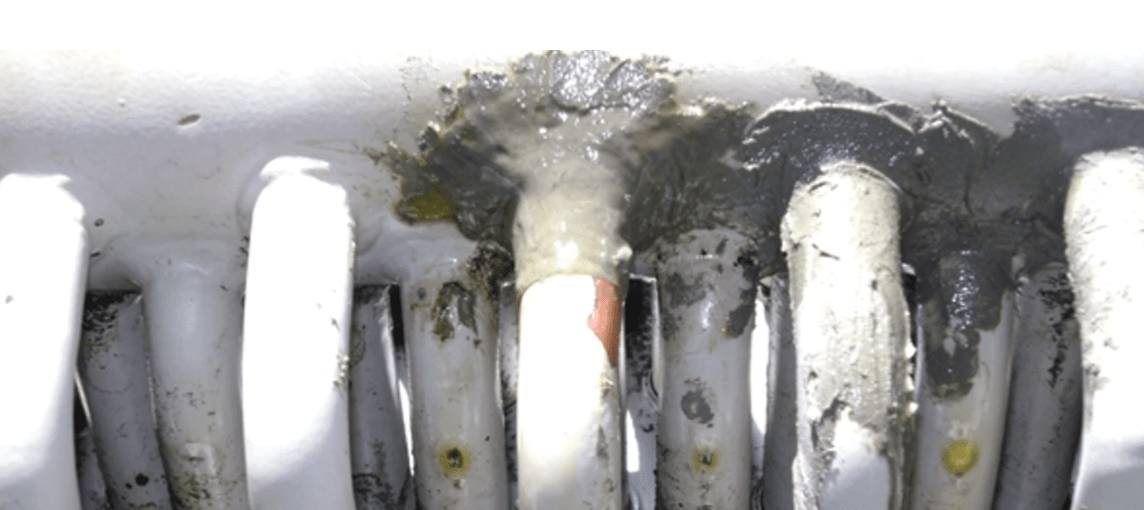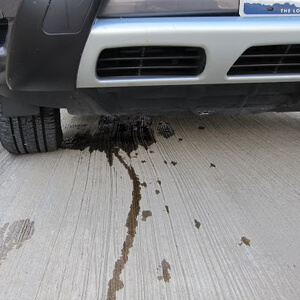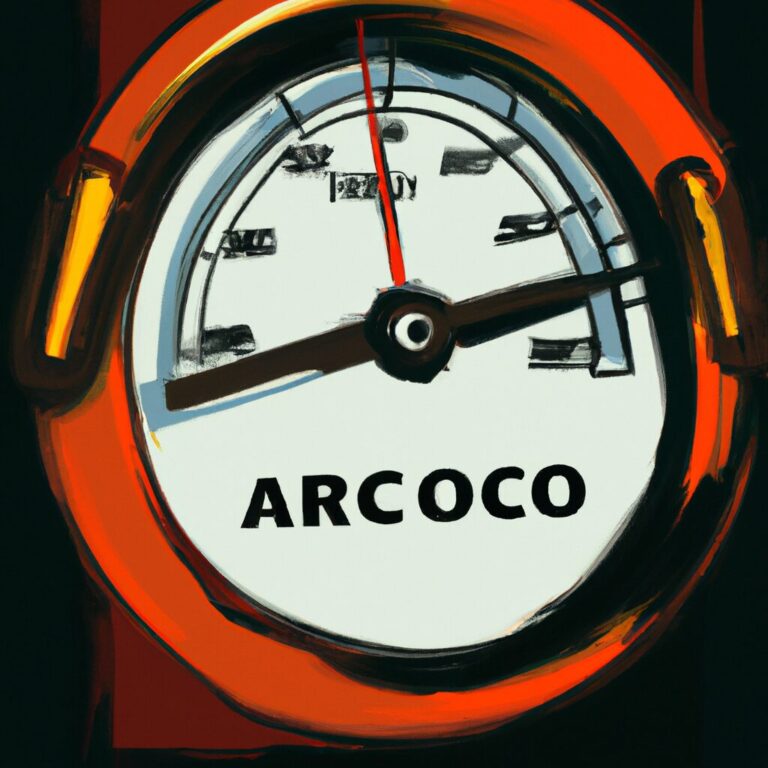How to Repair Oil Leaks
To repair oil leaks, locate the source, clean the area, and seal using appropriate materials. Oil leaks can be a common issue in vehicles or machinery, leading to environmental pollution, performance issues, and costly repairs if left unattended.
Finding the source of the leak is crucial before addressing the problem. Once identified, it’s essential to clean the area thoroughly to ensure a secure seal. Utilizing the correct sealant or repair kit based on the type of leak and surface can effectively resolve the issue.
Taking prompt action to fix oil leaks not only prevents further damage but also promotes safety and efficiency in your equipment or vehicle.

Credit: www.powerandcables.com
Identifying The Oil Leak
When it comes to handling an oil leak in your vehicle, the first step is identifying the issue. Oil leaks can lead to serious damage if left unattended, so it’s important to recognize the signs of a leak and locate the source promptly. Here, we’ll discuss the common signs of an oil leak and how to pinpoint where it’s coming from.
Common Signs Of An Oil Leak
An oil leak can manifest in several noticeable ways, such as:
- Puddles of oil under your car
- Burning oil smell while driving
- Low oil levels indicated on the dipstick
Locating The Source Of The Leak
When identifying the source of an oil leak, start by closely inspecting the areas where the most common leaks occur:
- Oil pan gasket
- Valve cover gasket
- Oil filter and drain plug
- Oil cooler lines
If the leak persists, it’s crucial to seek professional assistance to prevent further damage to your vehicle.
Repairing Minor Oil Leaks
Maintaining your vehicle’s engine is crucial to prevent oil leaks. When it comes to repairing minor oil leaks, addressing the issue promptly can save you from more significant problems down the line.
Replacing A Faulty Gasket
If you notice oil leaking from the engine, a common culprit is a faulty gasket. Replace the damaged gasket to prevent further leaks and ensure proper sealing.
Sealing Small Cracks Or Holes
Small cracks or holes in the engine can also lead to oil leaks. Use a sealant designed for engines to patch up these imperfections and prevent oil from seeping out.
Fixing Major Oil Leaks
If you’re grappling with major oil leaks, learn how to repair them effectively. Discover the step-by-step process to fix your oil leaks and keep your engine running smoothly.
Fixing Major Oil Leaks Replacing a Damaged Oil Pan To replace a damaged oil pan, you will need to raise the vehicle, drain the oil, and remove the old pan. Next, install a new pan, reattach the bolts, and refill with fresh oil. Repairing a Leaking Oil Cooler To repair a leaking oil cooler, start by locating the cooler and examining for any cracks or damage. If damaged, disassemble the cooler, replace the faulty parts, then reassemble and reinstall the cooler securely. Stay proactive in checking for major oil leaks and address these promptly to prevent any further damage to your vehicle.
Credit: myeuropro.com
Preventing Future Oil Leaks
Preventing future oil leaks is crucial for maintaining the health of your vehicle and avoiding costly repairs. Taking proactive steps to prevent leaks will help you keep your engine running smoothly and efficiently. By following these simple practices, you can reduce the risk of oil leaks and prolong the life of your vehicle.
Regular Oil Changes And Maintenance
Regular oil changes are essential for preventing oil leaks. Changing your oil at the manufacturer’s recommended intervals ensures that your engine is properly lubricated, reducing the risk of leaks and minimizing wear and tear on vital components. Additionally, staying on top of regular maintenance, such as replacing gaskets and seals, can help prevent leaks from developing.
Keeping An Eye On Oil Levels
Monitoring your oil levels regularly is another important step in preventing leaks. Checking your oil levels every few weeks can help you catch potential issues early. If you notice a significant drop in oil levels between changes, it’s essential to have your vehicle inspected by a professional to identify and address any potential leaks.
Seeking Professional Help
When it comes to repairing oil leaks, it is crucial to seek professional help for effective and long-lasting solutions. They can accurately diagnose the issue and provide the necessary repairs, ensuring the proper functioning of your vehicle and preventing potential damage.
Professional assistance is essential for addressing oil leaks and maintaining the performance of your car.
When Diy Repairs Are Not Enough
While attempting to fix an oil leak on your own can save you time and money, there are instances where DIY repairs may not be sufficient. It’s important to recognize when it’s time to seek professional help. Here are a few scenarios when you should consider getting assistance from a qualified mechanic:
- If the leak persists even after multiple attempts at fixing it yourself, it may indicate a more complex issue that requires expert knowledge and equipment.
- When the leak is located in hard-to-reach areas of the engine or transmission, professional expertise is often needed to ensure the leak is properly diagnosed and repaired.
- Leaks that involve major components, such as the oil pan, gaskets, or seals, may require specialized tools and techniques that only professionals possess.
- If you’re unsure about the severity of the leak or its implications on your vehicle’s performance, consulting a professional can help prevent further damage.
Choosing A Trustworthy Repair Shop
When seeking professional assistance for repairing oil leaks, it’s crucial to choose a trustworthy repair shop to ensure a reliable and satisfactory service. Here are some factors to consider when selecting a repair shop:
- Look for certified mechanics who have the necessary experience and expertise in dealing with oil leaks. Certifications such as ASE (Automotive Service Excellence) are indications of their qualifications.
- Ask for recommendations from friends, family, or online communities to find a repair shop with a good reputation for quality workmanship.
- Research and compare the prices and services offered by different repair shops in your area. However, remember that the cheapest option may not always provide the best results.
- Consider visiting the repair shop beforehand to assess their cleanliness, organization, and professionalism. This can give you an idea of how well they maintain their workspace and handle customer service.
- Ensure the repair shop provides a warranty or guarantee on their work, giving you peace of mind that they stand behind their repairs.
By following these guidelines, you can entrust your vehicle to a reliable repair shop that will effectively diagnose and repair oil leaks, ensuring the longevity and performance of your vehicle.

Credit: www.goldeagle.com
Frequently Asked Questions For How To Repair Oil Leaks
How Much Does It Cost To Fix An Oil Leak?
The cost to fix an oil leak can range from $150 to $1200, depending on the severity of the leak and the parts needed for repair.
Can I Fix An Oil Leak Myself?
Yes, you can fix an oil leak yourself by identifying the source and repairing or replacing the damaged components.
What Can I Put In Oil To Stop Leaks?
You can use engine oil stop leak products or additives to stop leaks in your car’s oil system. These products help to swell and soften the rubber seals, gaskets, and O-rings, reducing or stopping oil leaks. Regular maintenance and proper repairs are also essential for preventing leaks.
How Much Does Oil Leak Repair Cost?
Oil leak repair costs can vary depending on the severity of the leak and the type of vehicle. On average, it can range from $150 to $1200. It’s best to consult a professional mechanic for an accurate estimate based on your specific situation.
How Do You Know If You Have An Oil Leak?
To identify an oil leak, check for oil spots under your parked car or if you notice a burning oil smell or a low oil level on the dipstick.
Can Oil Leaks Cause Engine Damage?
Yes, oil leaks can lead to engine damage if left unattended. Insufficient lubrication may result in overheating and premature wear of engine parts.
What Are The Common Causes Of Oil Leaks?
Common causes of oil leaks include worn gaskets, seals, or O-rings, loose oil drain plugs, damaged oil pans, or even a faulty oil filter.
Conclusion
Repairing oil leaks is crucial for the longevity of your vehicle. By identifying the root cause and taking prompt action, you can prevent further damage and avoid expensive repairs. Following the steps outlined in this post will help you effectively address oil leaks, ensuring a smooth and efficient performance of your vehicle.

